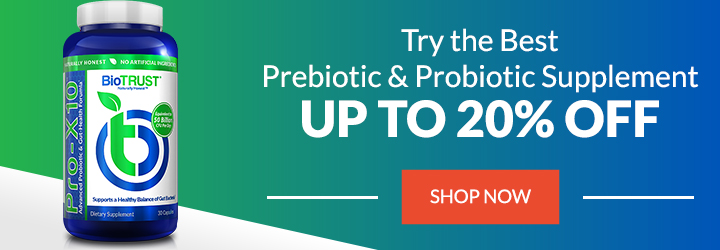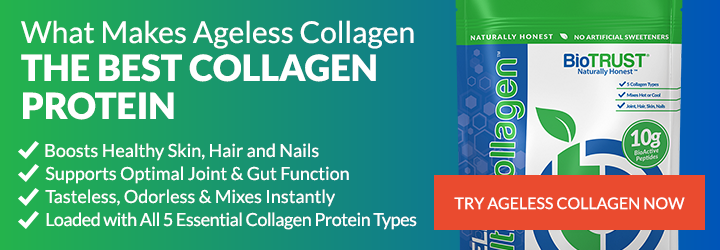How to Eat Your Way to Healthy, Supple Skin

Your skin is your best, most visible “accessory,” so it’s important to take good care of it. Unfortunately for many, maintaining healthy, supple skin is easier said than done. Countless factors can wreak havoc on your skin, many of which are difficult to manage or simply out of your control. Some of these include climate, hormones, stress, and genetics. As a result, cosmetic skin treatments involving needles and lasers are marketed to improve the skins’ appearance.
Luckily, there is a simpler and, may I add, much less painful (and even tasty) fix to achieve that smooth, supple skin we all desire. Even more, we are lucky enough to have total control over one of the largest influences on our skin, and that’s our diet. That is why it is crucial to supplement your diet with the best foods for healthy skin.
When thinking about my own diet, I always like to keep the saying “you have to nourish to flourish” in front of mind. To me, this means wellness begins on the inside, so I must fuel my body with the best nutrients to give myself the greatest opportunity to grow and be healthy. This becomes especially true when it comes to keeping healthy skin.
Skin is the body’s largest organ, so when we’re not eating right, our skin is the first to show it. But this also means our skin can be our own personal billboard, advertising our efforts (or lack thereof) for keeping up with a healthy, balanced diet.
Certainly not all foods affect skin the same way. Some foods are clearly better than others when it comes to contributing to healthy, supple skin. Let’s run down the best foods for healthy skin.
The 7 Best Foods for Healthy Skin
1. Healthy Fats
Filling your diet with the right types of fat, such as monounsaturated and polyunsaturated fats, provides essential fatty acids that act as a natural moisturizer for your skin, keeping it supple and improving elasticity. Many of these fats also have the added bonus of being packaged with vitamins which can help protect against free radical damage.
Monounsaturated fats can be found in nuts, avocados, and olive oil. Intake of monounsaturated fatty acids has been reported to reduce oxidative stress, insulin resistance, and related inflammatory processes and may thus protect from skin photoaging. 1
Polyunsaturated fats include omega-3 and omega-6 fatty acids. Omega-3 fats encourage the body to produce anti-inflammatory compounds, which may help inflammatory skin conditions like eczema.
You can find omega-3s in oily fish and plant sources like chia seeds, walnuts, and grapeseed oil.
2. A, C, E Vitamins
You can “ACE” your way to healthy skin by getting the proper intake of vitamins A, C, and E. These three vitamins play essential roles in maintaining healthy skin. Vitamin A is one of the most widely recognized nutrients for skin health, as it supports cell replication and regeneration and can suppress excessive oil production that contributes to acne.
Further, vitamin A deficiency can often show in scaly skin and raised bumps on the back of the arms.
You can find vitamin A in yogurt, cheese, and beta-carotene-rich vegetables, such as sweet potatoes, carrots, and butternut squash.
Vitamin C is essential for building structural protein collagen, which is crucial for the stability and plumpness of the skin. Additionally, vitamin C is an antioxidant, meaning it protects skin cells from damaging free radicals caused by UV exposure.
C also inhibits melanin production in the skin, which helps lighten hyperpigmentation and brown spots, even out skin tone, and enhance skin radiance.
Some of the best vitamin C foods for healthy skin include broccoli, bell peppers, and tomatoes.
Similarly, Vitamin E is an antioxidant that can fight off free radicals. Additionally, vitamin E helps heal and moisturize, which can help strengthen skin barrier function. This is because Vitamin E is also a natural anti-inflammatory, so it can be soothing and help calm the skin.
Vitamin E can be found in all nuts and seeds as well as leafy green vegetables.
3. Zinc
Zinc is also essential for healthy skin. One reason being is because it is necessary for wound healing, which is important for times when your skin is damaged and for the overall regeneration and renewal of cellular repair.
Zinc also has antioxidant properties that protect the zinc from UV damage, which is why you find it in many sunscreens. Zinc even works to promote the health of the skin by supporting immunity, balancing blood sugar levels, and improving overall metabolism. When these functions are not working properly, skin issues can arise.
Some of the best zinc foods for healthy skin include beef, chicken, and lentils.
4. Probiotic Foods
At this point, I firmly believe the gut plays a role in the health of every single part of your body, including your skin.
Skin can often be influenced by gut health, so helping support a healthy gut microbiome should also be part of your skincare routine. Poor gut health can result in a lack of absorption of nutrients, reduced production of anti-inflammatory substances, and a compromised immune system that can manifest itself in conditions such as acne and eczema.
Good sources of probiotics in food include yogurt, miso, and sauerkraut.
5. Carotenoids
Carotenoids are yellow, orange, and red organic pigments produced by plants and algae, as well as several bacteria and fungi. These pigments help stimulate epidermal regeneration to help soften and smooth skin.
Carotenoids can help reduce skin pigmentation by decreasing the size of melanocytes and melanin levels. The most well-known carotenoids are beta-carotene and lycopene.
Beta-carotene can be found in sweet potatoes, carrots, and butternut squash, whereas lycopene can be found in cooked tomatoes, watermelon, grapefruit, and red peppers.
6. Hydrate
Skin needs moisture. The body is made up of between 55 and 75% water, and the skin itself is 30% water. In fact, even if dehydration is just mild, it can cause skin to look dry and tired. It is recommended that you drink at least six to eight glasses of water a day. But don’t forget that some fruit and vegetables, such as watermelon and cucumber, also contribute fluids—the added benefit is that the minerals they contain may increase the rate you hydrate your body and skin.
7. Collagen
Although the body naturally produces collagen, production is dramatically reduced as we age. Fortunately, you can replenish and restore collagen levels and healthy skin by adding more collagen to the diet. Supplementing with collagen may even slow the early appearance of wrinkles. This is because collagen is important in connective tissue, and when we are low in collagen, the thickness of the epidermis is reduced, and skin loses its elasticity, which leads to wrinkling. Collagen also aids in increasing moisture retention, boosting elasticity, reducing the appearance of fine lines, and smoothing skin. 2
Fighting Skin Damage
Now that you have a good idea of the best foods for healthy skin, it’s also important to point out that there are many foods out there that may deteriorate skin health.
Excess sugar in the diet, which often comes from highly refined grains and processed foods, can encourage the degradation of collagen and elastin in the skin. This leads to a loss of firmness and elasticity and can lead to premature sagging and wrinkles.
Beyond diet, other lifestyle factors can affect skin health. Things like stress, lack of exercise, lack of sleep, overeating, smoking, and excessive alcohol consumption can all have a negative effect and age the skin.
We all want to preserve our youthful skin the best we can. By taking the right steps, we can continue to enjoy the benefits of healthy, supple skin, but it is also critical we remember to be kind to ourselves. Aging is completely natural and a normal part of life, and being pro-aging can actually help us age slower.
Each of our unique fine lines and imperfections tell our personal story. So, as you age, your face shows qualities like strength, kindness, dedication, enthusiasm, humor, and compassion.
That being said, you’re never too old to help reverse aging and look younger. The foundation to healthy skin is diet. Healthy skin is a reflection of overall wellness, so a diet filled with fresh, whole foods will not only lead to feeling better on the inside but will be reflected on the outside too!







